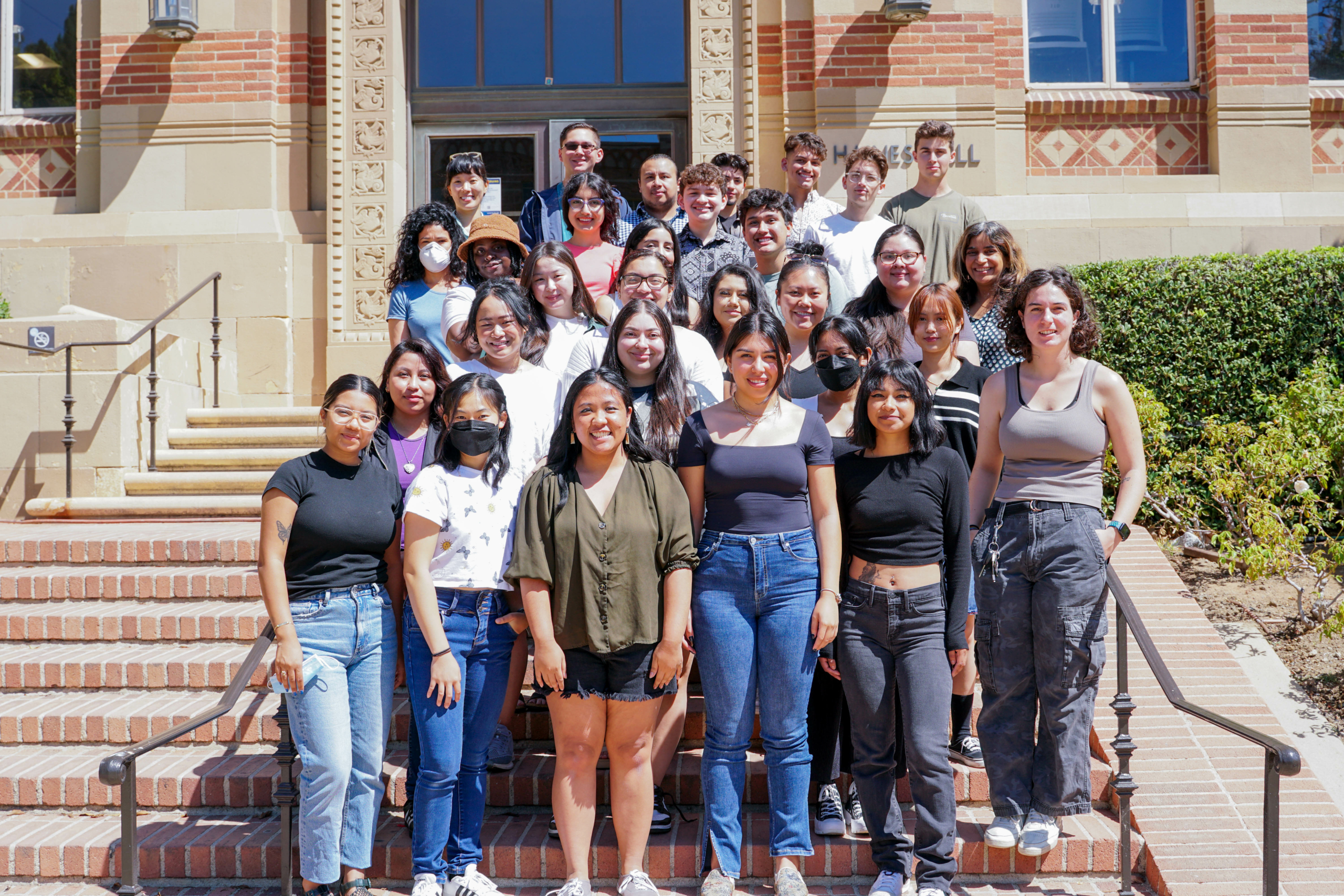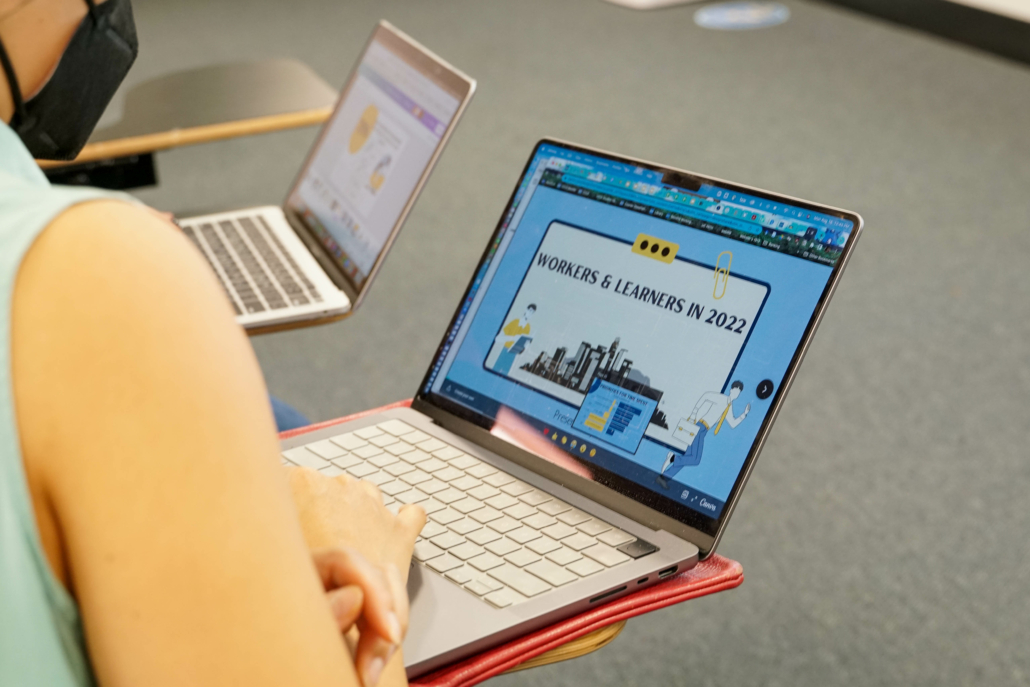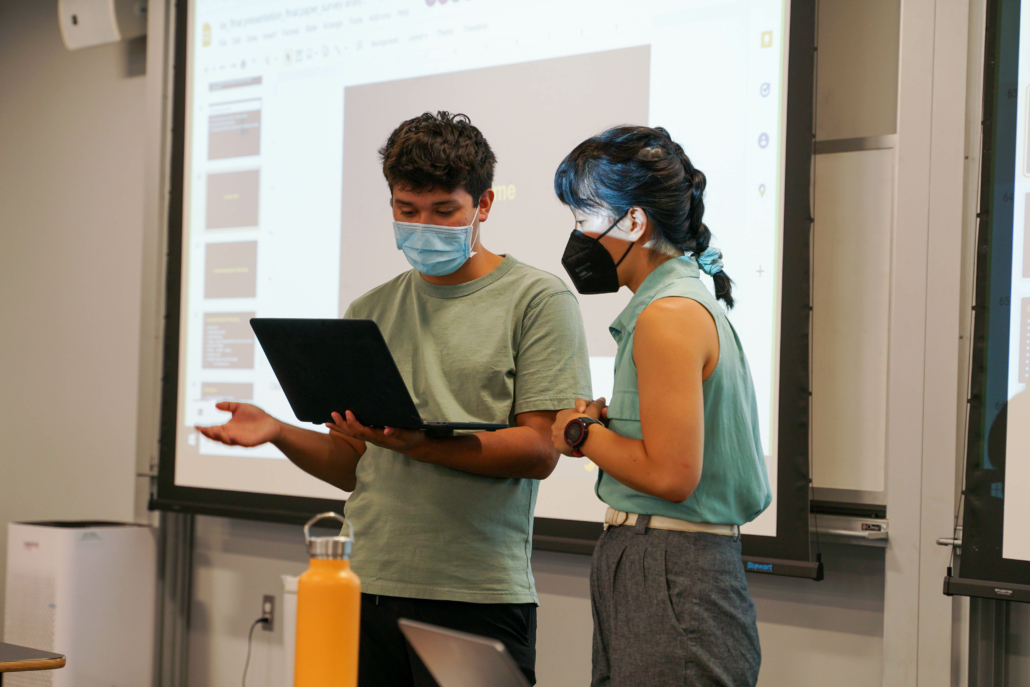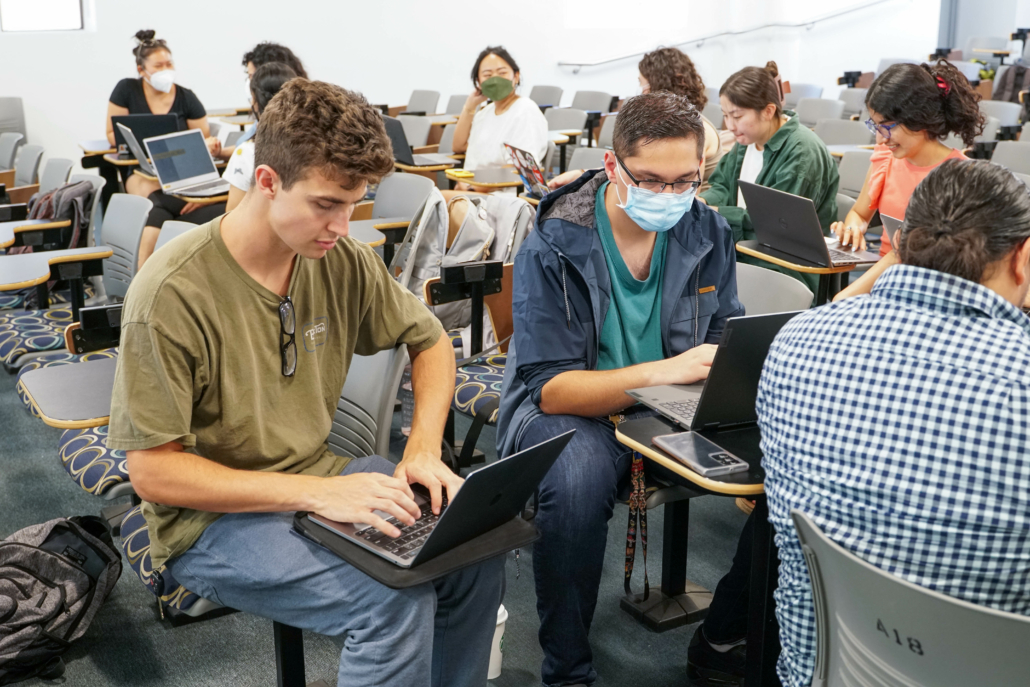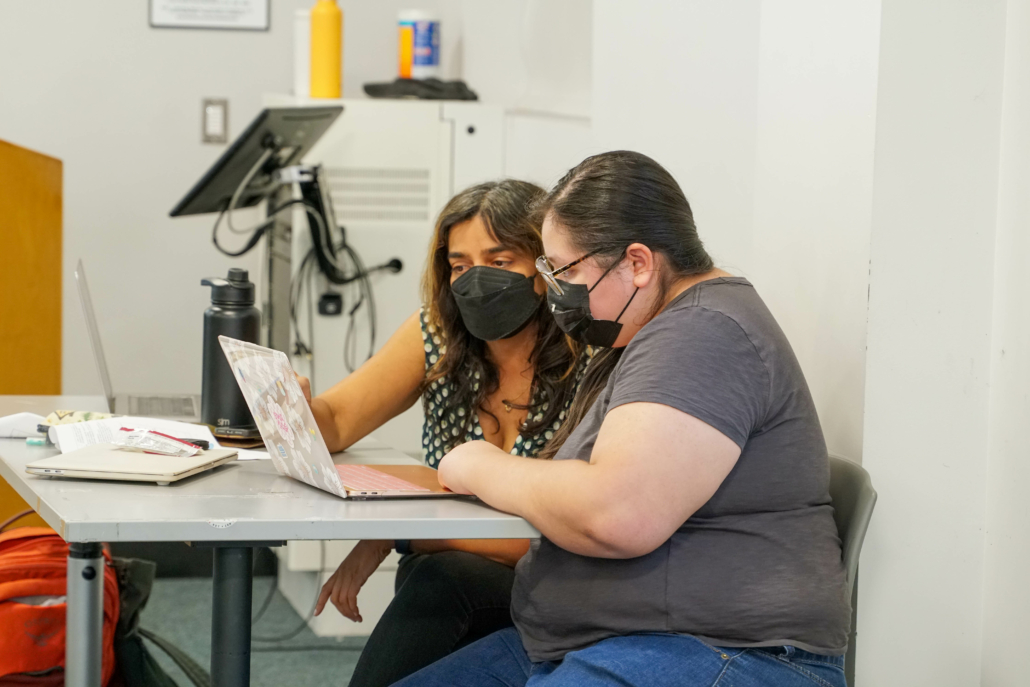Labor Summer Research Program students shine a light on the experiences of “Workers and Learners” in L.A. County
Vanessa Codilla | August 18, 2022
In Los Angeles, half of all college students identify as “workers and learners,” or those who work and attend school at the same time. Workers and learners navigate a number of barriers and opportunities in fulfilling their educational and broader career goals yet do not always receive the necessary support and accommodations in order to do so.
Undergraduate student researchers shared this key finding in the Labor Summer Research Program (LSRP) 2022 Final Presentations: Workers and Learners in Los Angeles County webinar on August 17.
The presentations were the culmination of a six-week research intensive offered by UCLA’s labor studies academic program, in which students investigate the conditions for this workforce at the intersection of attending school. Over the course of the program, LSRP students collected a total of 151 surveys and 30 interviews, conducted survey data analysis and wrote report findings and recommendations to advance the workers and learners research housed at the UCLA Labor Center.
“Our focus is to provide the support and infrastructure that allows students to move through an entire research project – from design, implementation, to dissemination – within just a few weeks,” said course instructor and UCLA Labor Center Research Director Saba Waheed.
While previous LSRP cohorts focused on the impacts of the COVID-19 pandemic and subsequent easing of pandemic-related restrictions nationwide on workers and learners, this year’s students focused on issues such as transportation and financial challenges, worker organizing and accessibility of mental health resources.
“For this year, we really tried to focus on providing the students with more time and practice in developing their own perspectives and analysis around the findings,” said course teaching assistant Michele Wong.
“This allowed our students more time to hone in on the story that they were trying to tell about workers and learners, connecting the data to their own experiences, and really taking control of the worker and learner narrative.”
Given that many LSRP participants also identified as workers and learners, some presenters could relate to the experiences highlighted in their surveys.
For rising fourth year political science major and labor studies minor Riley Araujo, connecting his data with the experiences faced by transfer students like himself was the highlight of the program.
“I wanted to get research experience in an environment in which I can engage with real workers and learners and connect with them not just as pieces of data, but as humans,” said Araujo. “By and large, people in the transfer community have to work, and that’s a community that I’m part of so I feel like I was really able to engage with them.”
Araujo and his group explored the struggles workers and learners navigated in attempting to balance school and work. In their presentation, they shared that 70% of students missed class, study opportunities or office hours at least once due to work-related responsibilities.
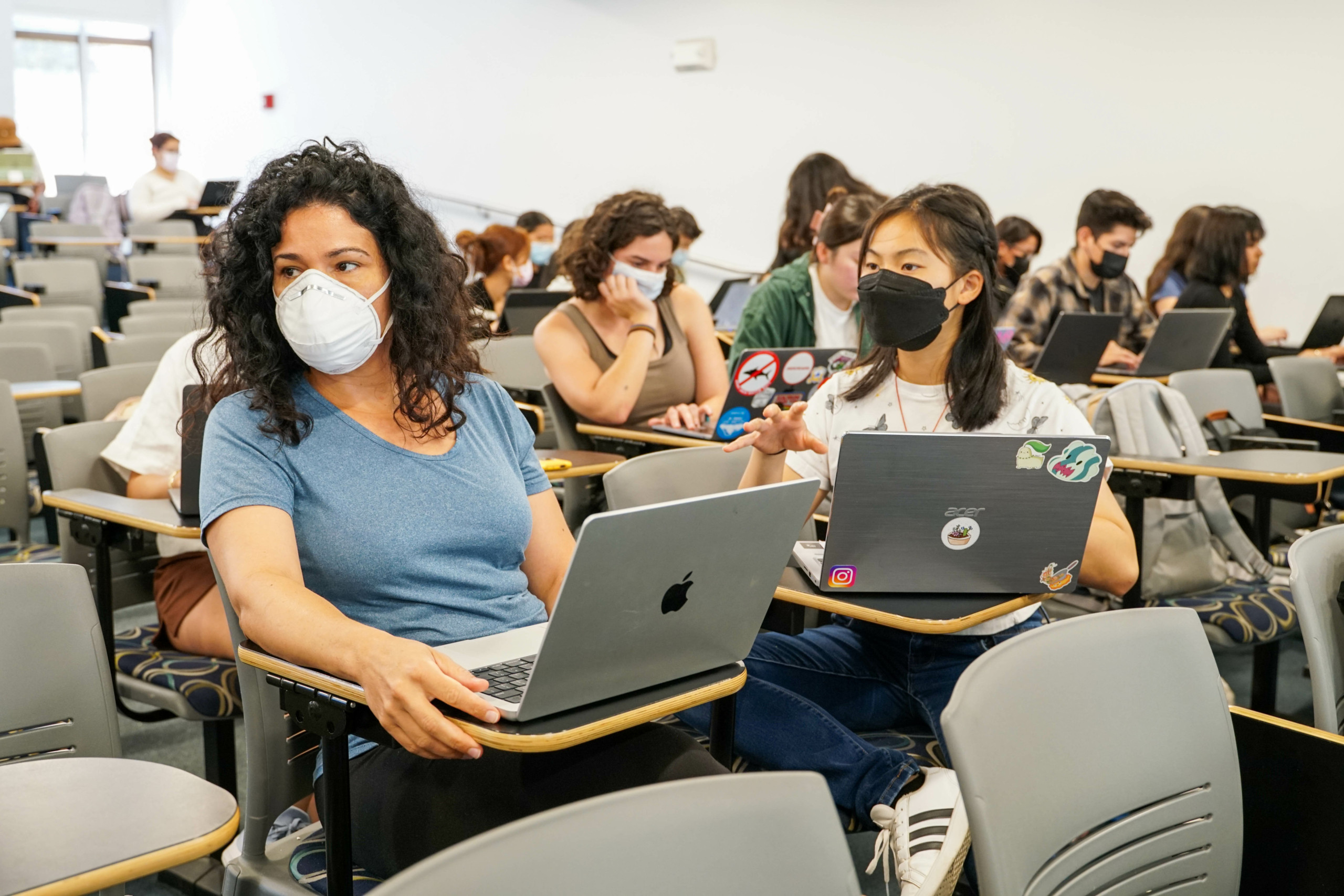
Aucileia Rosa and Sarah Huang work on a slideshow presentation of their group’s research findings.
Sarah Huang, an incoming third year and human biology and society major, was interested in examining mental health resources available for workers and learners, especially after the onset of the COVID-19 pandemic. Huang’s group shared in their presentation that 44% of participants often prioritized work obligations over their mental health.
“Even though [mental health resources] are available, [it] doesn’t mean they’re accessible,” said Huang during an interview before the presentation day. “[Workers and learners] don’t always have the time to access them or they don’t have the finances to access them.”
The groups also shared proposed solutions to address the challenges faced by workers and learners from an institutional perspective. Some solutions included providing more career-related job opportunities on campus, offering comprehensive workers rights training and investing in online learning and tutoring. However, these changes do not come easily.
“Workers and Learners has been an ongoing project since 2018 and we see that a lot of recommendations in the past haven’t been implemented by the university,” said fourth year labor studies and sociology double major Qianyi Loo, who conducted focus groups on workers and learners with labor studies professor Janna Shadduck-Hernandez in the prior spring quarter.
“Hopefully as this project continues, we’ll be able to see our recommendations come to life on campus,” said Loo.
Learn more about the specific findings, key issues and proposed recommendations from the presentation here. To access more research on workers and learners, visit the UCLA Labor Center website.

